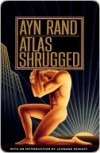Revising Herself: The Story of Women's Identity from College to Midlife
 There isn't a written review of this book yet on Goodreads, so I'll take a crack at it.
There isn't a written review of this book yet on Goodreads, so I'll take a crack at it.In Revising Herself, Josselson compiles data from 3 sets of interviews with 30 or so college-educated middle and upper class white women. The diversity of the sample was not particularly great. The three interviews were set approximately 10 years apart: once at the end of college, another at age 33, and a final interview at age 43. The interviews were very detailed, and Josselson gives us snippets from some of the interviews. She doesn't recount every single detail and doesn't tell a story for every single woman. She tells parts of their stories. For its time, this book would have been considered groundbreaking work, especially since studies frequently just assumed that if men followed a pattern, then women must follow that same one too.
Josselon placed the 30 women within 4 categories, and these women tended to experience different identity "crises" at different ages, depending on how they started their identity journey in college. The four categories included the Guardians, the Pathfinders, the Searchers, and the Drifters. I didn't find myself particularly drawn or described by any of these categories, but if I had to guess, I would be somewhere between a Pathfinder and Searcher. I am definitely not a Guardian.
The book is well written and inspires thoughtful reflection, even if I didn't learn many new things. I read this book because I wanted to know how my experiences fit in with others' experiences, but I didn't find what I was looking for. Instead, Josselson encourages the readers to recognize that all women's experiences are somewhat unique. Despite the uniqueness, women of the time tended to form their identities by locating themselves in relation to others. It's a frustrating concept to accept. With all the progress that women had made in the work world, political world, and cultural world, they still primarily referred to themselves in relation to others. I can't quite decide if Josselson's work reinforces the stereotype that women are primarily relational creatures or if the culture of America still at that point held women down by their bonds. I'd like to think it's the latter, but I haven't seen data for people in the 2000s and later yet, so it's hard to tell. My biggest concern with this book is that some people may use Josselson's research to reinforce gender stereotypes. However, it's important to remember that not all of the women depicted in Josselson's research were mothers, and some of them had high status careers.
Josselson's most important work is not the women's gender experiences. Her most important work actually comes in the last section where she describes the women's identity growth. Growth is essentially the process of collecting your sense of place and revising your identity based on your past and present, or as Josselson puts it so well, "Growth is a process of rewriting, revising, and interweaving these narratives" (256). The growth in identity occurs when a woman takes her past and reworks it to fit her present narrative of herself. This shows that basically human memory is not reliable, but also that humans tell themselves whatever stories help them get through the day. They resolve cognitive dissonance by revising the definition of themselves.
I admire Josselson's work for this book, and I hope to see future works like this, but her findings are a little disappointing, to be honest. That even during and after the feminist movement, women still primarily define themselves by their relationships rather than their achievements. Maybe these women are wiser than I am and know something that I don't. Humans are social creatures, after all, but I just wish that these women would have defined themselves in terms of their aspirations, work, and ambitions as equally as they defined themselves in terms of relationships.




